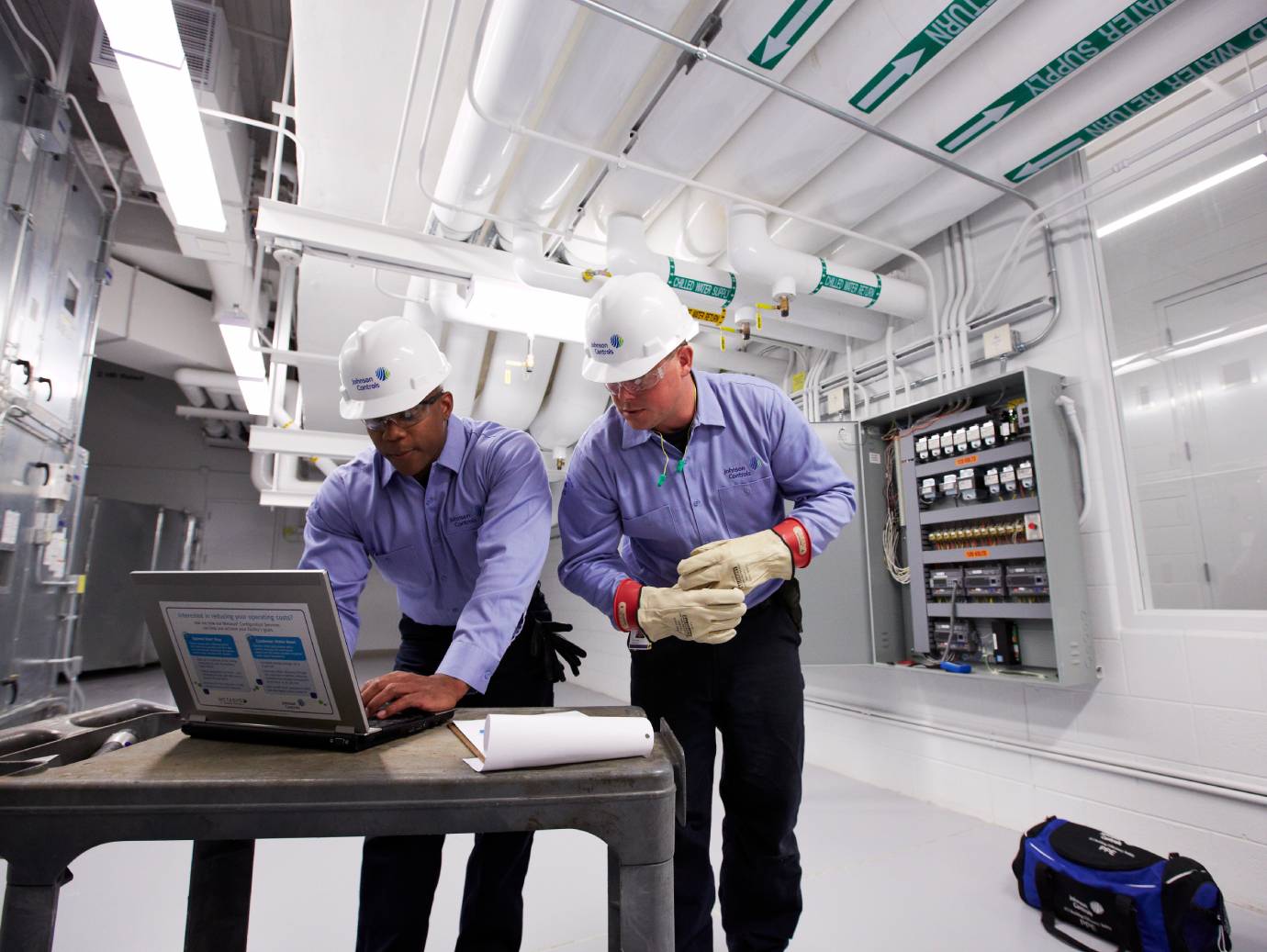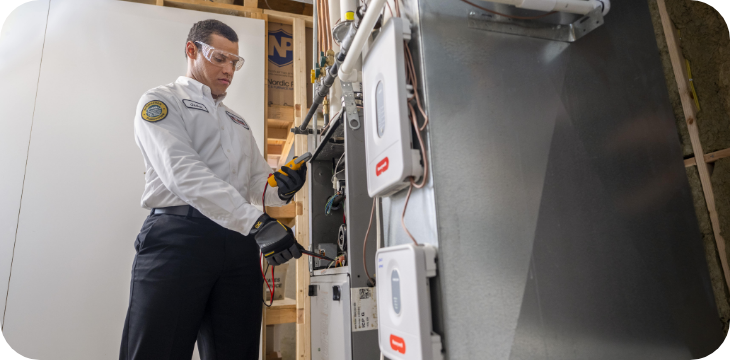Energy-Efficient A/c Solutions to Conserve on Energy Costs
As power prices remain to climb, the importance of energy-efficient heating and cooling systems ends up being progressively noticeable. These systems not just assure significant financial savings on utility bills but also add to a more sustainable future by minimizing power intake. With numerous alternatives available, consisting of geothermal heatpump and ductless mini-splits, home owners face a plethora of options that can improve comfort and air top quality. Comprehending the essential features and upkeep demands is necessary to optimizing these benefits. What factors should be focused on when selecting the appropriate system for your requirements?
Advantages of Energy-Efficient HVAC Equipments
Energy-efficient a/c systems offer many benefits that extend beyond plain cost savings. One substantial benefit is the minimized ecological impact. By taking in much less power, these systems add to reduce greenhouse gas exhausts, aiding to fight environment adjustment and advertise sustainability. This aligns with boosting social needs for environmentally friendly techniques in household and commercial settings.
Additionally, energy-efficient heating and cooling systems often offer improved comfort levels. Much of these systems feature sophisticated innovation that enables much better temperature control and enhanced air high quality (DMAKS HVAC). This results in a healthier indoor atmosphere, which is specifically vital for individuals with allergies or breathing problems
Moreover, purchasing energy-efficient a/c systems can improve property worth. As even more consumers prioritize energy performance, homes and structures furnished with these systems may attract greater quotes in the real estate market.
Sorts Of Energy-Efficient Cooling And Heating Options
Just how can house owners and companies select one of the most ideal energy-efficient a/c options for their demands? The marketplace provides a variety of energy-efficient cooling and heating systems, each created to enhance convenience while lessening power usage.
One option is the variable cooling agent flow (VRF) system, which efficiently manages the temperature in numerous zones within a structure. This system adapts its cooling agent flow to match the wanted temperature level, leading to substantial energy financial savings.
One more preferred option is geothermal heatpump, which use the planet's stable temperature level to heat and cool areas. By transferring warm to and from the ground, these systems show excellent effectiveness, specifically in moderate environments.
Additionally, ductless mini-split systems supply an energy-efficient choice for homes lacking ductwork. These systems enable zone-specific heating and cooling, lowering energy waste in empty locations.
Finally, high-efficiency heaters and air conditioning system, with advanced SEER and AFUE ratings, supply dependable environment control while consuming much less power than traditional designs. By reviewing these options, property owners and organizations can select an a/c system customized to their specific requirements and energy effectiveness objectives.
Key Features to Consider

Next, explore the kind of compressor used in the system. DMAKS HVAC. Variable-speed compressors can adjust their outcome to match the heating or cooling down need, resulting in boosted comfort and power cost savings contrasted to single-speed models. In addition, look for systems geared up with smart thermostats that supply programmable settings and remote accessibility, permitting far better control over energy usage
Another vital attribute is the system's air purification capacity. High-efficiency filters can boost interior air top quality and lower power intake by ensuring the system runs successfully. Furthermore, consider the kind of cooling agent made use of; modern-day systems commonly use green cooling agents that have a reduced ecological effect.
Finally, guarantee that the system works with zoning modern technology, which permits for personalized temperature control in different locations of your home, improving comfort while decreasing power usage.
Tips for Choosing the Right System


Next, think about energy efficiency rankings, especially the Seasonal Energy Efficiency Ratio (SEER) for cooling down systems and the Annual Fuel Utilization Efficiency (AFUE) for heating unit. Greater scores indicate better effectiveness, which can result in significant financial savings on energy bills over time.
In addition, assess the sort of HVAC system that finest suits your way of living and budget plan. Options consist of central air conditioning, ductless mini-splits, and heat pumps, each with its very own set of benefits and drawbacks.
Do not neglect the importance of correct installation and sizing; an inaccurately sized system can cause inefficiencies and boosted wear. Consult with an expert HVAC specialist to obtain skilled referrals tailored to her response your home's one-of-a-kind requirements. This detailed approach will make certain that you select an energy-efficient cooling and heating system that meets your requirements and budget successfully.
Upkeep for Ideal Performance
When the ideal HVAC system is in location, recurring upkeep becomes essential additional info to making certain optimal effectiveness and long life. A properly maintained system operates extra properly, causing lower energy consumption and decreased utility expenses. Normal examinations and tune-ups should be scheduled a minimum of two times a year-- when prior to the air conditioning period and once before the home heating period.

Homeowners need to also be vigilant regarding monitoring their cooling and heating system's performance. Uncommon noises, changing temperatures, or boosted energy expenses can show underlying issues that call for immediate interest. By addressing these worries promptly, house owners can prevent expensive repair work and expand the lifespan of their systems.
Spending in a maintenance strategy with a qualified professional not only boosts efficiency however also provides assurance, knowing that the system is running at its finest. DMAKS HVAC. Regular upkeep is consequently essential for sustaining power efficiency and minimizing overall operational prices
Final Thought
To conclude, energy-efficient heating and cooling systems provide a sensible remedy for reducing utility bills while improving comfort and air high quality. By integrating innovative modern technologies and choices such as geothermal heatpump and ductless mini-splits, homeowner can achieve significant energy savings and add to ecological sustainability. Mindful factor to consider of system attributes and recurring upkeep additionally makes sure ideal efficiency, making energy-efficient systems a prudent investment for both economic and ecological benefits.
Comments on “Comfortable Living Made Easy with Solutions from DMAKS HVAC.”